A Bio-Forensic Scientist's Diary: Working, Studying, And Life In The UK
Is forensic science a good career in UK?

A Bio-Forensic Scientist's Diary: Working, Studying, And Life In The UK
Bio-Forensics is a field that combines various fields of science, such as genetics, biology and chemistry, with those of law enforcement to detect the remains of evidence from criminal cases. This has led to an increasing demand for qualified bio-forensic scientists in the United Kingdom.
The United Kingdom and Bioforensics
Bioforensics is a growing field in forensic science and the United Kingdom is doing well in terms of research and development. There are many universities and research centres in the UK that are dedicated to bioforensics and this makes it one of the most prominent countries when it comes to this field.
The UK has a long history in forensic science and its scientists have been working on solving crimes for years. This has led to them developing some of the best techniques and methods when it comes to bioforensics. The UK also has a strong network of partners around the world, which helps with sharing knowledge and resources.
There are many opportunities for aspiring bioforensic scientists in the UK, as there is always room for new talent. In addition, there are many positions available in government institutions and private companies that are focused on bioforensics. Those who are interested in this field should definitely consider applying for positions in these organizations.
Working in a lab and life as a bioforensic scientist
Bio-forensic science is a fascinating and unique field that combines the sciences of biology, chemistry, and forensic pathology. Working in a lab and studying the human body can be incredibly rewarding, but it can also be challenging and demanding. Here is a diary of my life as a bio-forensic scientist in the UK. January 1st: I started working at my current lab as a bio-fore forensic scientist. It's been a busy start to the year with lots of planning and organising required for our new lab. This has included setting up our laboratory, recruiting staff, and getting to grips with our research programmes. It's been great to get to know my colleagues and to work on some exciting projects. February 2nd: It's been a busy week here at the lab with two research projects completed. One involved analysing blood stains found at a crime scene, and the other involved examining skin cells isolated from an unknown source. Both investigations are ongoing, so it's been good to keep busy throughout the week. March 1st: Another busy day at the lab with three research projects completed. One involved examining DNA extracted from hair samples found at a crime scene, another
Tips and Advice for Bioforensics Professionals
Blog contributors:
Neela Mahajan, MSc Forensic Science and Biochemistry, Forensic Science Society of Great Britain
Bio-forensic scientists are responsible for piecing together the puzzle of a crime by working with scientific evidence. Here are some tips to make your career in this field as successful as possible:
1. Pursue a degree in forensic science or biochemistry. This will give you an understanding of the scientific principles involved in forensic investigations.
2. Gain experience in a forensic laboratory. This will give you the skills and knowledge needed to work with scientific evidence.
3. Keep up to date with current techniques and methods in forensic science. This will ensure that your investigations are as accurate as possible.
4. Be prepared to deal with difficult cases and sensitive information. As a bio-forensic scientist, you will be required to handle sensitive information responsibly and protect the privacy of those involved in investigations.
The Roadmap to Becoming A Forensic Scientist
There are a few essential steps you need to take to becoming a forensic scientist. The first step is getting an undergraduate degree in a science-related field, such as chemistry, biology, or physics. After that, you need to obtain a doctoral degree in forensic science if you want to work as a full-time forensic scientist. Finally, you need to pass the Forensic Science Board (FSB) certification exam. Here is a roadmap outlining each of these steps:
1. Get an undergraduate degree in science-related field.
2. Obtain a doctoral degree in forensic science if you want to work as a full-time forensic scientist.
3. Pass the Forensic Science Board (FSB) certification exam.
How to Find the Best Job, Salary, and Coworkers as a BioForensic Scientist
Bio-Forensic scientists work in a variety of jobs and industries, but many work in the criminal justice system or academia. Some bio-forensic scientists study human remains to help identify victims or perpetrators of crimes. The best way to find a job as a bio-forensic scientist is to research the field and look for regional or national job boards or online job postings. Some bio-fore forensic scientists also work in private industry doing forensic consulting.
When researching the best way to make a living as a bio-fore forensic scientist, keep in mind that salaries vary greatly based on experience and location. As a general rule, salaries for bio-forensic scientists range from $50,000 to $150,000 per year with most falling between $75,000 and $110,000 per year. In addition, Bio-Forensic Scientists can make good money working in private industry doing forensic consulting.
Conclusions
Bio-forensic scientists use their skills to help solve crime. They study crime scenes, collect evidence, and analyze it to determine what happened. They also work to develop protocols for handling such evidence so that it can be used in court. Bio-forensic scientists often work in the UK, where they have access to some of the best laboratories in the world.
You Can Refer
Top Bioforensics Courses in USA for Masters
Top Bioforensics Courses in UK for Masters
Top Bioforensics Courses in Australia for Masters
Top Bioforensics Courses in Canada for Masters
Top Bioforensics Courses in Ireland for Masters











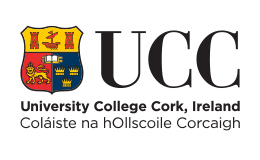






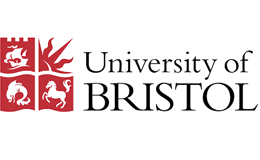





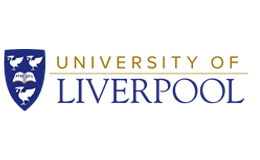












.png)





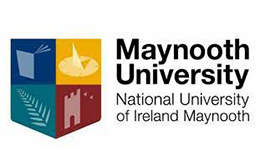

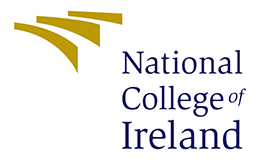

.png)
























.png)






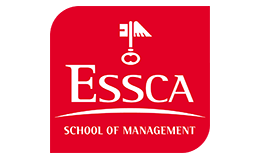








.png)





